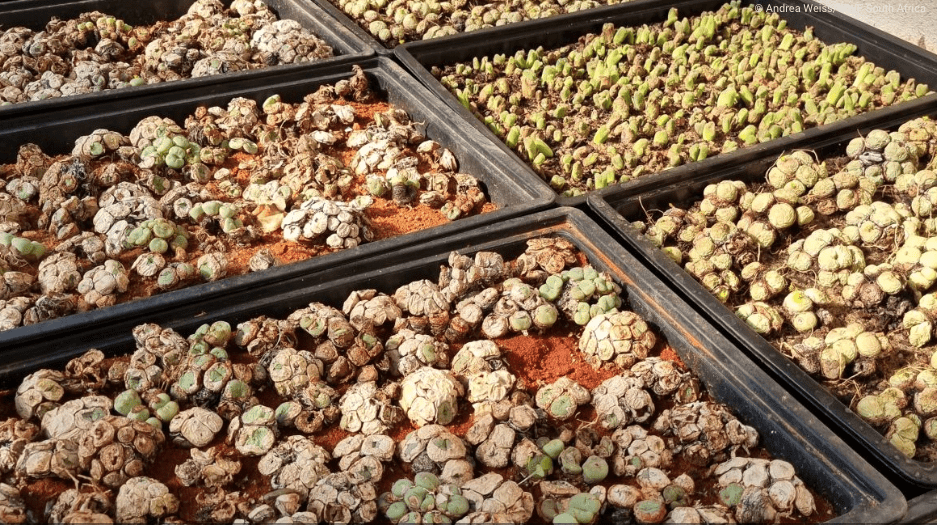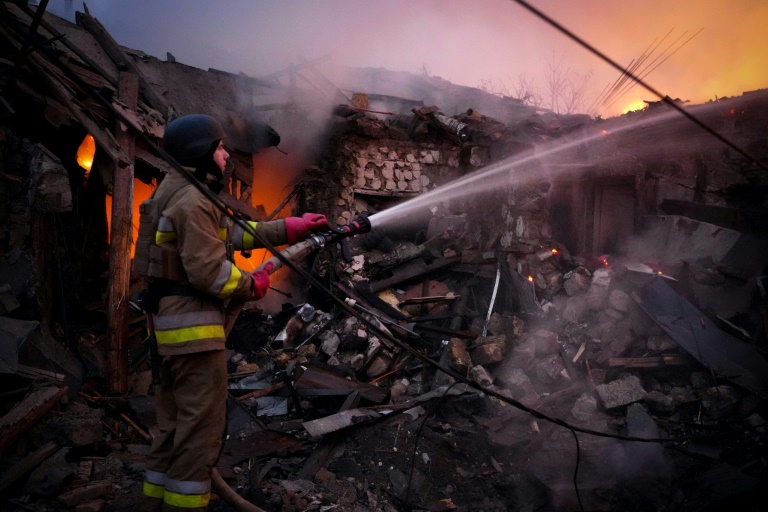During 2020-21, succulent cases constituted 40% of the total number of cases registered in the Western Cape. Photo by WWF
The national government should engage with destination countries in East Asia to help tackle the illegal export of poached succulents and the international criminal syndicates fuelling the illicit trade.
This was the call made by the Democratic Alliance (DA) in the Western Cape on Friday after a recent parliamentary reply from the provincial government revealed that it was not aware of any steps being taken to address the destination markets for illegally poached succulents in foreign countries.
The illegal succulent plant trade remains the most pervasive wildlife crime in the Western Cape, according to CapeNature. Most plants are earmarked for the illicit trade in East Asia, where they are sold to collectors and nurseries.
The province accounts for over 52% of all flora species in South Africa, many endemic to the Western Cape. In the past four years, 650 species and more than 1.2 million wild harvested plants have been seized, with less than 25% of the trade being intercepted by enforcement officials, according to CapeNature.
“CapeNature is not aware of any specific steps taken to address the matter in destination countries,” said Anton Bredell, the member of the executive council responsible for local government, environmental affairs, and development planning.
He was responding to questions posed by Dave Bryant, the DA spokesperson for environmental affairs and development planning.
The trade records analysis of flora and fauna in commerce by Traffic, an international wildlife trade monitoring network, has “numerous awareness-raising operations in many destination countries” — Bredell noted.
He added that a multi-institutional task team had identified interventions to address the demand in destination countries as part of the national response strategy and action plan to address succulent plant poaching.
This included recommendations for the department of forestry, fisheries and the environment to engage the department of international relations and cooperation. Bryant said it was a “matter of utmost urgency” that these recommendations are followed through on.
Bredell’s reply revealed that the the focus of plant poaching in the Western Cape is on the miracle clivia, elephant’s foot, several species of the Euphorbia family, Eriospermum species and numerous species of dwarf succulents belonging to the Conophytum genus.
In the Klein Karoo region of the Succulent Karoo Biome, the main succulent plant poaching focus now is on species in the Gibbaeum genus, colloquially known as volstruistone, duimpie-snuif, papegaaibek, vinger-en-duim, visbekvygie and volstruiswater.
According to the South African National Biodiversity Institute (Sanbi), Gibbaeums are bizarre succulents that grow hidden among pebbles.
“The entire genus is endemic to the Cape Floristic Region, occurring only in the arid habitats of the Little Karoo and surrounds,” Sanbi stated.
Bredell said that species of the stone plant/“vygie” family Mesembryanthemum, such as kougoed, were, too, being illegally plucked from the wild.
“The demand of species changes depending on the market demand,” Bredell noted.
A joint task team consisting of officials from CapeNature, Sanbi, the National Prosecuting Authority, and the South African Police Service (SAPS) are working together to address succulent plant poaching within the Western Cape. This team had met twice in the past 12 months, Bredell said.
He added that a provincial biodiversity investigators forum, which consists of officials from CapeNature, SANParks, Sanbi and the SAPS stock theft and endangered species units, “discuss cases, share information on suspects and plan joint operations” to address plant poaching in the province. This forum had convened six meetings in the last 12 months, Bredell said.
“The DA in the Western Cape will continue to support all possible efforts to stop the poaching of succulents in our province,” Bryant added. “We call on [the] national government to assist further by focusing on both the international criminal syndicates and the host countries responsible for the consumption of our precious stolen biodiversity.”





















Discussion about this post